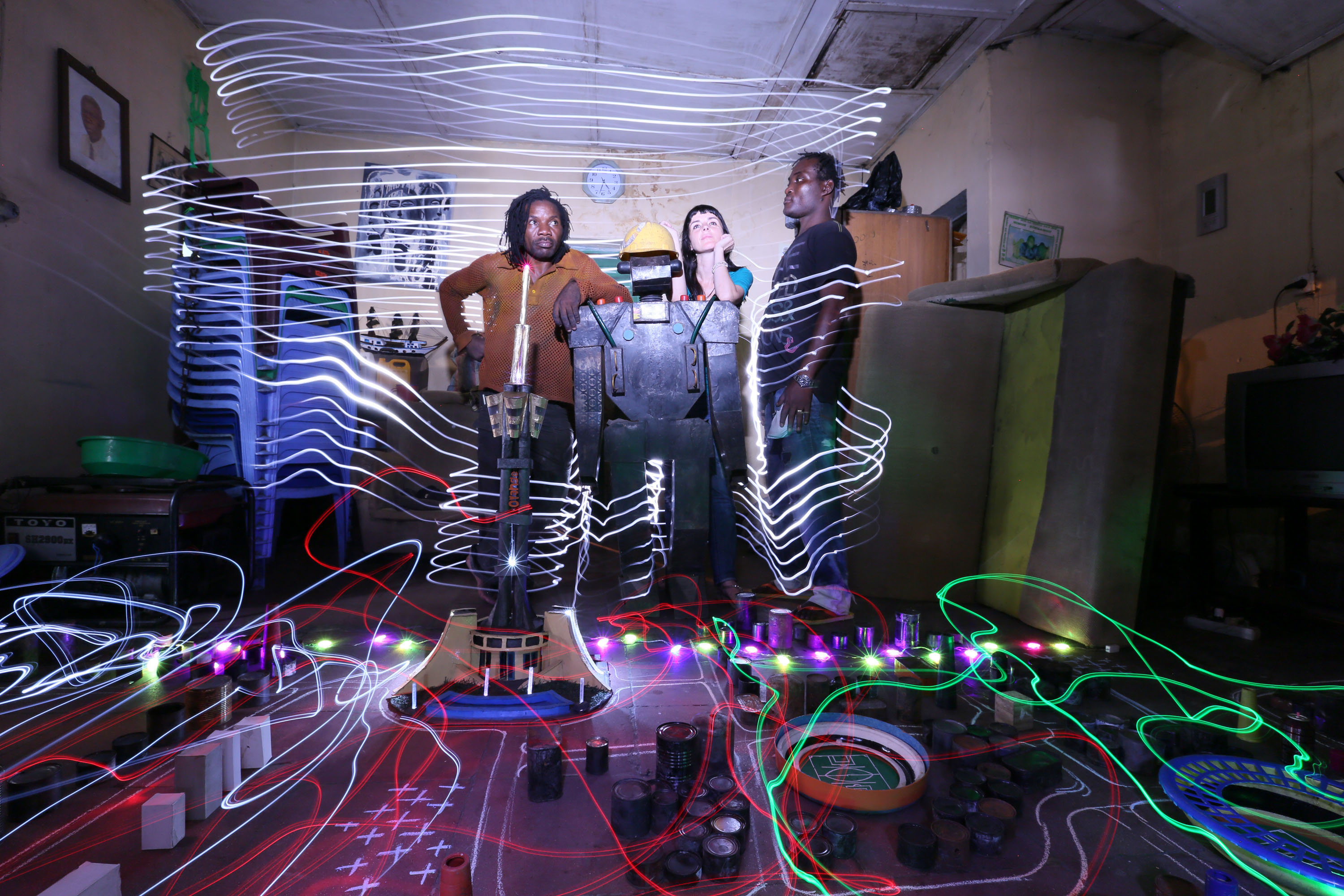"Afropolitan platforms: what futures?"
Ayoko Mensah is an expert, journalist, author and cultural activist. Since 2016, she has been working as an artistic programmer and consultant in the Africa department of the Palais des Beaux-Arts in Brussels. Since 2000, she has also been a consultant for several organizations (UNESCO, European Commission, International Organization of La Francophonie, Royal Museum of Central Africa), and regularly participates in international conferences.
Franco-Togolese, born in 1968, Mensah holds a degree in Cultural Management (MA) from the University of Paris-Dauphine (France), in Modern Letters (MA) from the Sorbonne Nouvelle University (Paris) and in Journalism (CFPJ, Paris). After directing the journal Africultures (www.africultures.com) from 2005 to 2008 and founding and editing the magazine Afriscope, she worked as an expert for the EU-ACP support programme for the ACP (African, Caribbean and Pacific), ACPCultures + cultural sectors at the ACP Secretariat in Brussels. Since 1995, she has written more than a hundred articles (notably for Africultures.com) and has collaborated with several media (RFI, Revue Noire, Ballet Tanz, Balafon, etc.)
She has also co-authored several books: Houn-Noukoun, Tambours & Visages (1996), Faustin Linyekula, choreographer (2002); Un corps à construire - La nouvelle génération d'artistes africains de la performance (2004); Créations artistiques en pays d'islam (2006); Kultur Afrika (2010); Djoliba, le grand fleuve Niger (2010); Créer en postcolonie - Voix et dissidences belgo-congolaises (2016).
Recently, Ayoko Mensah published a short story in the collection How Free is Free? Reflections on Creative Freedom of Expression in Africa edited by Arterial Network and directed his first short film entitled Bilal.
--------
This seminar proposes to reflect on the driving roles of artistic forms, practices and knowledge in the development and circulation of political structures, movements, ideologies and imaginations on the African continent and in its diasporas. Our work will focus on the visual and performing arts in the broadest sense of the term (dance, theatre, visual arts, photography, cinema, music, literature, digital arts...) and will be part of a critical and transdisciplinary approach. Anthropology, history, art history, political science, visual and material cultures, colonial, postcolonial, decolonial and diasporic studies of Africa... will rub shoulders and question each other. The sessions will be structured around presentations by researchers and/or practitioners - artists, cultural actors, activists. Diverse and reflecting a wide range of points of view, the work and approaches presented will have in common that working (on) the intersections between art and politics requires a commitment on the basis of which reflection and theorization are required.
Thematic of the 2018-2019 cycle: Future Africa
Future or, better still, future. The future of cities, ecologies, gender constructions; the future of technology and science; violence - political, economic, social; hope; the very notions of the future... Thinking, saying, giving substance to these and other related futures from Africa: these are the tasks that plastic artists set themselves through their practices and thoughts.ne.s, filmmakers, performers and writers, philosophers and researchers, curators and cultural activists who will be participating in the seminar in 2018-2019. Committed, indocilious, even radical, the proposals they develop undermine apriori and doxas.

